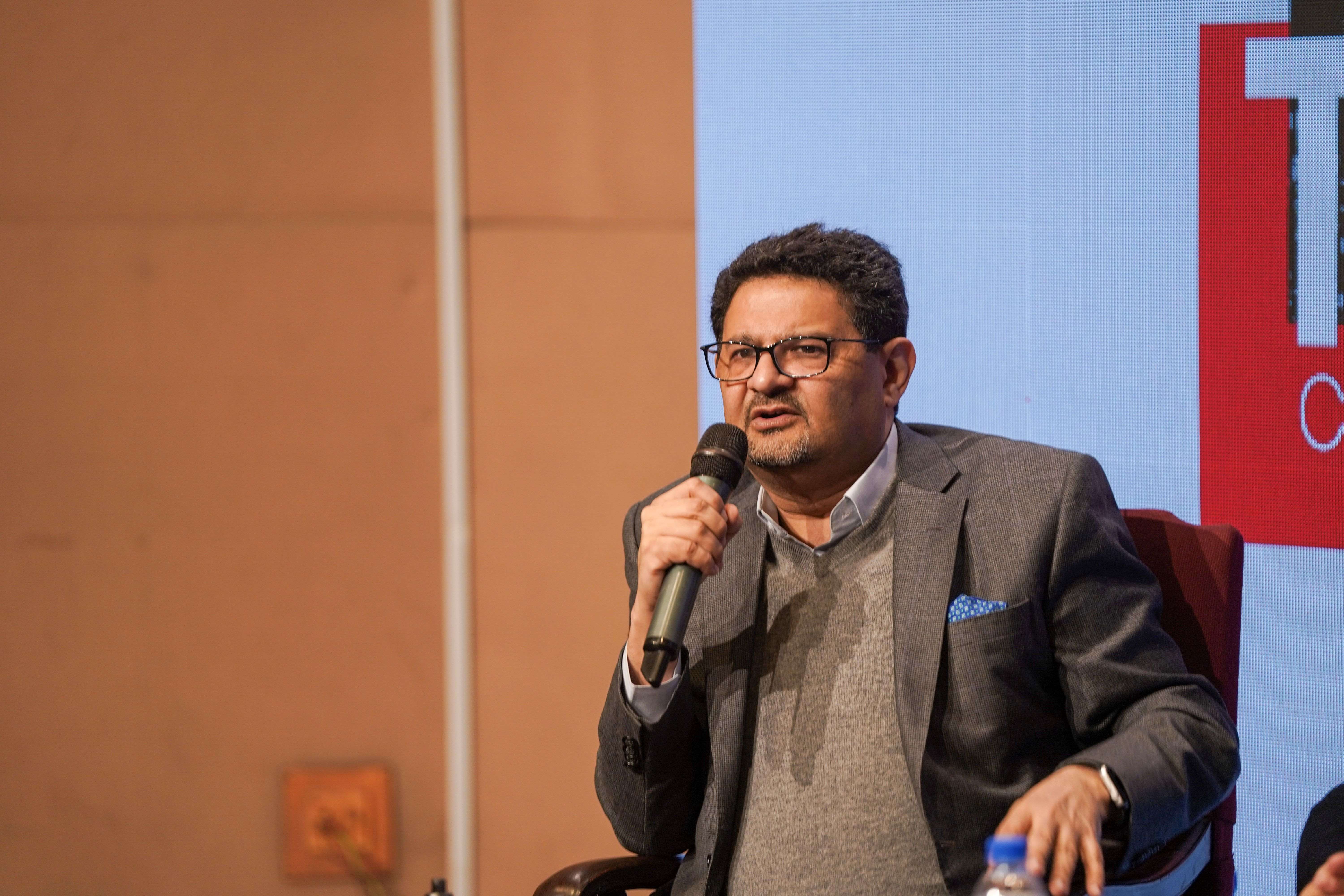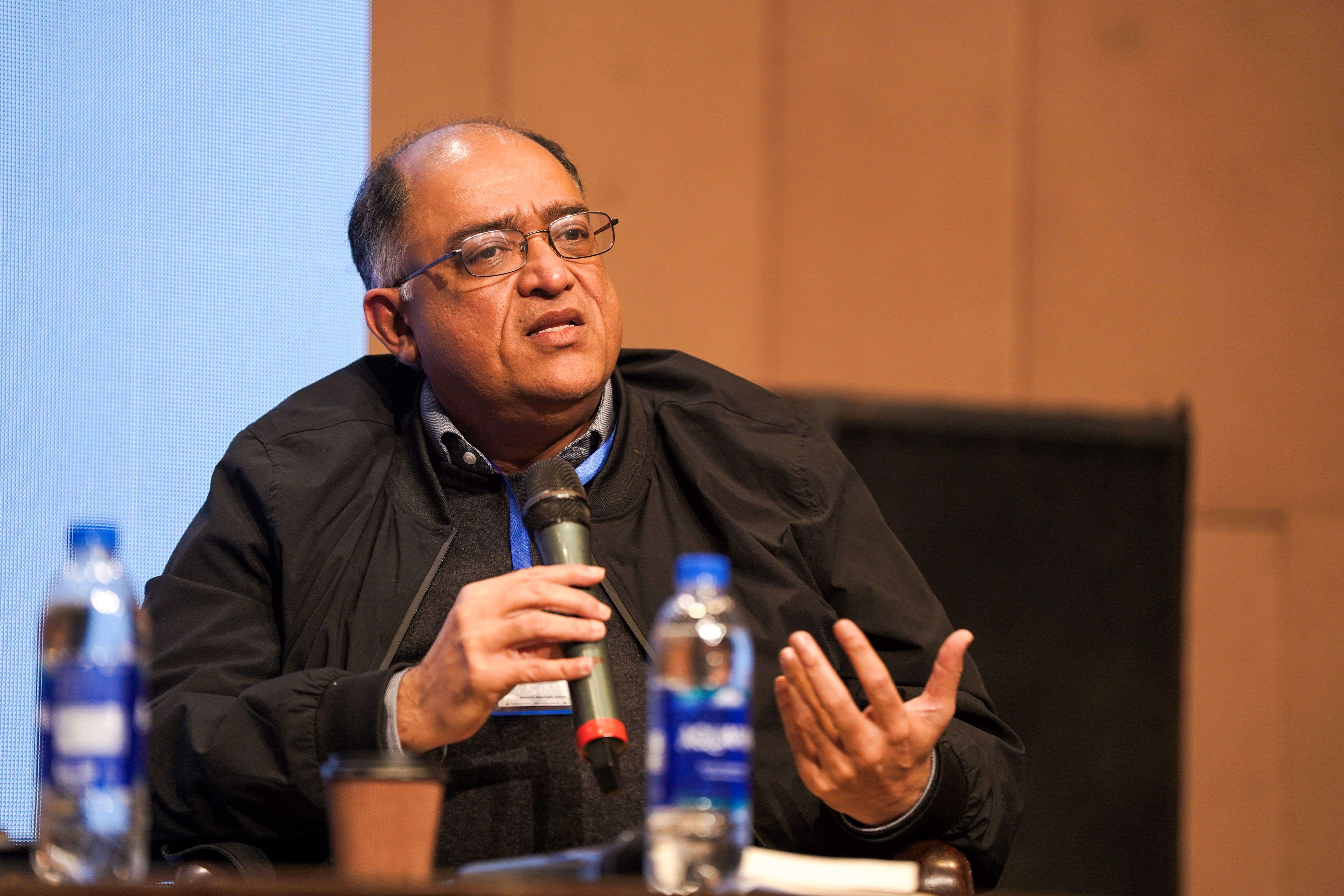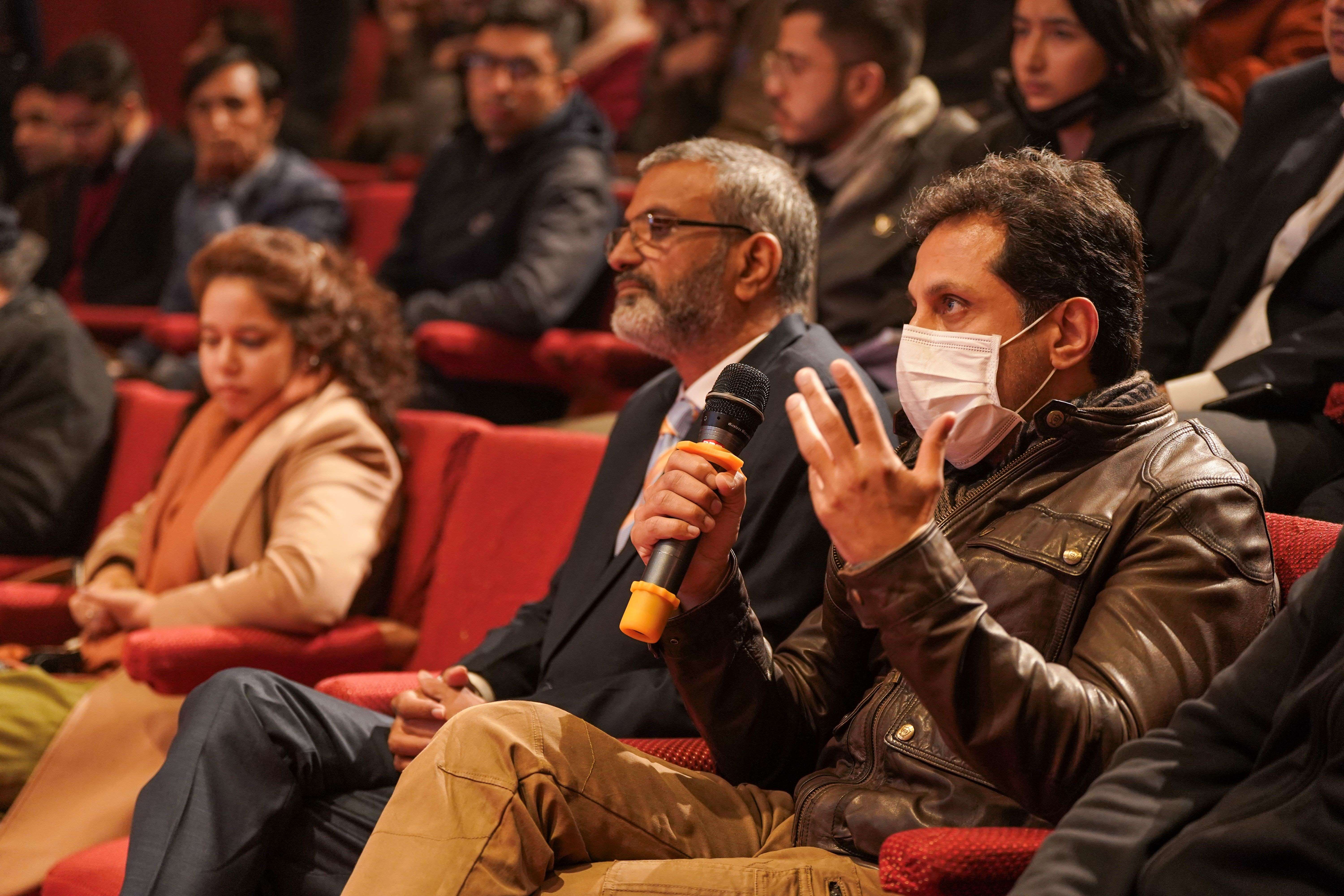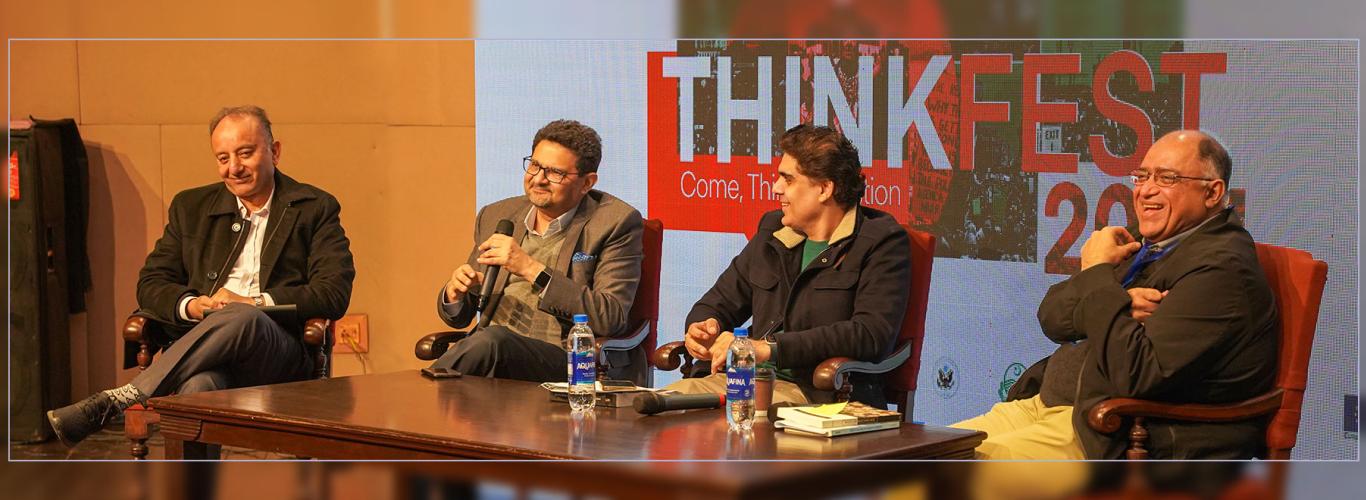LUMS Vice Chancellor, Dr. Ali Cheema Delves into Strategies for Sustainable Growth in Pakistan at Panel Discussion
What are the factors that drive economic growth? How should resources be allocated in a productive economy? What policy reforms need to take place to spur innovation in Pakistan? These are just some of the questions covered during the panel discussion on ‘How to Get Sustainable Growth in Pakistan’ on January 13, 2024. The session was part of ThinkFest 2024 and featured LUMS Vice Chancellor, Dr. Ali Cheema; Former Minister of Finance of Pakistan, Dr. Miftah Ismail; and Senator Musadik Malik.
Moderated by Savail Hussain, Economist and CEO, Sayyed Healthcare Limited, the participants engaged in a lively and candid discussion. Dr. Cheema commenced the session by explaining that Pakistan’s growth model has not been driven by the traditional factors of innovation and productivity – rather, it has relied on consumption and government expenditure, leading to a current account crisis. He stressed the importance of allocating resources to areas that spur innovation and productivity, so Pakistan can move towards a structure that is more export driven.
The discussion delved into policy recommendations. Dr. Cheema highlighted the importance of restructuring the economic system, addressing issues such as import protection, and tariff and tax reforms. He also underscored the impact of climate change on agriculture and the need for infrastructure to adapt to new practices.

The panellists also discussed the viability of creating clusters of similar or complementary industries. Dr. Ismail shared that he believes it would be more beneficial to privatise certain sectors, like railway and electricity, to make them more efficient. He discussed the import substitution model and shared, “We don’t talk about value addition. The phones, cars, and electronic goods we make in Pakistan can only be sold within the country – nowhere else. We must tax other items rather than imports. We should have wealth tax, property tax and get money from the rich to spend on the poor. If we can do this successfully, then we can reduce tax on imports and move on to export promotion. At the moment, we are borrowing from the future of our children.”

Dr. Cheema suggested that one way that we can catalyse industry synergies is by empowering cities as effective units of the economy. “If the local government can raise revenue by growing the wealth of the city, then there will be the incentive to spatially plan cities in a way that will catalyse clusters. But for that, we must have very effective local governance systems. We keep bringing in law, but don’t empower this framework of governance,” he said.
During the session, Dr. Ismail stressed that any sustainable growth plan would need to emphasise education as well. He explained, “Productivity improvement can only happen through a trained labour force. But if over 50% of the population cannot read, then it is difficult to take that country forward. We must educate people. There is no other way.”
Noting that Pakistan continues to produce unskilled labour while also facing a brain drain, Dr. Cheema added, “The return to education in Pakistan is very low. We are pushing students into schools to study, but without giving them a future. We can't think about the education system without the economic system. Economical structural reform is critical for educational reform.”

During the Q&A session, audience members raised questions on topics ranging from public-private partnerships, to the quality of manpower, and the role of local governance in building a sustainable economy.
The discussion provided a thought-provoking exploration of the intricacies surrounding Pakistan's economic trajectory and underscored the complexity of the challenges at hand. The insights shared during this session encouraged ongoing conversations, fostering a collective commitment to reshaping Pakistan's economic landscape for sustainable and inclusive growth.

